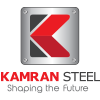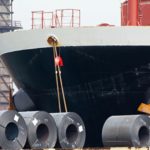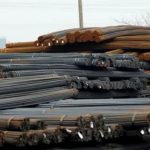Steel industry is the foundation of infrastructure, manufacturing and industry in Pakistan. Steel has been a major unreplaceable material in economic development, whether in housing schemes and bridges or in the development of major power projects. The steel industry of Pakistan however has been facing a trade imbalance over time where imports are far more than the exports.
One of the most reputable and reliable steel companies in Pakistan, Kamran Steels has earned a reputation of providing high quality steel products that drive the infrastructure, houses and industrial developments of the country. Kamran Steels has a history of over 40 years of experience in the steel business, which earned it a reputation of innovation, longevity and customer trust.
Guided by a mission to help in the economic empowerment of Pakistan, Kamran Steels has been constantly investing in the latest technology, sustainable practices, and energy efficient production techniques.
The Pakistani Steel Imports: An Emerging dependency.
In the past, Pakistan has been relying on imported steel, especially flat steel products, hot-rolled coils (HRC) as well as billets, the raw material of finished products. Trade reports claim that Pakistan imports more than 3 billion dollars in iron and steel yearly and its major suppliers are China, Japan, Ukraine and South Korea.
Some of the reasons that contribute to high imports are:
- Lack of availability of local raw materials production – Iron ore deposits in Pakistan are under exploitation.
- Increasing construction and CPEC project demand – Mega projects demand special steel grades.
- Energy crises -High prices reduce the use of local capacities.
- Price competitiveness of Chinese steel – Often cheaper despite tariffs.
Such over dependence on imports strains the foreign exchange reserves of the country and exposes the domestic industry to the risks in global prices.
Steel Exports: An Untapped Potential
Conversely, the Pakistani steel exports are minimal with most of them being semi finished products, scrap and some few value added products. Exports are hardly over $50-100 million a year whereas imports are limited to a small fraction.
Export issues include:
- Lack of large-scale production for global markets.
- Certifications in quality needed in international trade.
- High energy and logistics costs.
- Limited government incentives for steel exporters.
This implies that Pakistan is not a competitive exporter of steel at the present time in the international market. Rather, attention is paid to domestic demand – and even that is fulfilled by imports.
Steel Imports vs. Local Production: A Comparative Outlook
| Aspect | Imports | Kamran Steels (Local Production) |
| Quality Control | Varies by supplier, risk of inconsistency | Consistent, international-standard rebars |
| Cost | Expensive due to tariffs, shipping, forex fluctuations | Locally produced, stable pricing |
| Supply Reliability | Delays due to port congestion & shipping | Quick, reliable delivery |
| Economic Impact | Increases trade deficit | Strengthens domestic economy |
| Sustainability | Dependent on foreign suppliers | Eco-friendly production methods |
The Trade Imbalance: Economic Implications
The disparity of billions invested in imports and very low export incomes leads to the imbalance of trade which has a direct impact on the economy of Pakistan.
- Expanding current account deficit -Large imports undermine foreign reserves.
- Increasing project cost – Steel of imported origin would increase infrastructure costs.
- Strain on local industry- Local mills are under strict competition with cheaper imported goods.
Kamran Steels: Secondary Contingency.
Kamran Steels, in the context of such problems, is one of the leaders of the local industry, determined to decrease the reliance on imports and introduce long-term steel solutions in Pakistan. The efforts of the company can be closely associated with managing the import-export gap.
1. Reducing Import Dependence
Kamran Steels invests in state-of-the-art re-rolling mills and modern technology where it can produce rebars and long steel products of international standards. With its quality assurance, it minimizes the problem of the imported rebars in construction projects.
2. Promoting Mega Projects in the Locality.
Housing schemes through massive infrastructure projects, Kamran Steels offer them good supply chains, so developers and contractors do not need to rely on imported steel.
3. Energy Efficiency & Cost Competitiveness
The steel mills in Pakistan are usually weakened by high production costs. Kamran Steels solves this with the use of energy efficient technologies which allow cost effective production that is able to compete with imports.
4. Sustainability for Future Growth
As world markets shift to green steel, Kamran Steels focuses on green and sustainable production. This does not only favor the demand within the country but also places the company in a position to consider future export possibilities.
The Road Ahead: Can Pakistan Strike the right balance between imports and exports?
In order to shift to a balanced steel trade, Pakistan requires:
- Policy support – Incentives for local steel manufacturers and exporters.
- Use of local resources -Investment on the extraction of iron ore.
- Technology upgrades- To compete with the world players.
- Sustainability focus – Green steel production for international demand.
In this mission, Kamran Steels has already set the lead with examples of how the local industries can decrease their reliance on imports but boost the steel industry which forms the backbone of Pakistan.
Conclusion
The steel industry in Pakistan is a kind of challenge and opportunity. High rates of imports put pressure on the economy and low rates of exports point to unexploited opportunities. But firms such as Kamran Steels are changing this story. The orientation on quality, sustainability, and trustworthy supply allows Kamran Steels to satisfy the needs of the domestic market, as well as to establish the conditions of the latter in the future export competitiveness.





Recent Comments